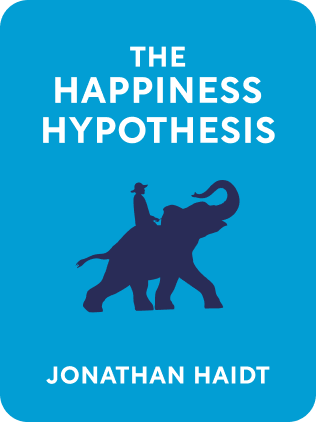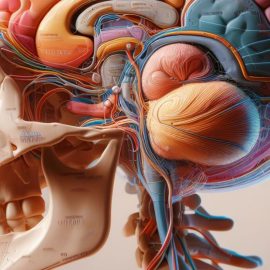

This article is an excerpt from the Shortform book guide to "The Happiness Hypothesis" by Jonathan Haidt. Shortform has the world's best summaries and analyses of books you should be reading.
Like this article? Sign up for a free trial here .
Why do we feel a strong urge to repay favors, even from strangers? How does altruism lead to happiness? Is it possible to feel good while faking altruism?
Reciprocal altruism theory states that we treat others as we have been treated by them. In other words, we may help others at a cost to ourselves, in hopes that others will repay the favor. This altruistic behavior came from evolution because by doing good for others, we are doing good for ourselves.
Keep reading to learn more about the reciprocal altruism theory.
Do Unto Others
One key factor that affects our happiness is the strength of our connections to other people. The reciprocal altruism theory—the phenomenon by which we treat others as we have been treated by them—is one of the strongest ties that bind society together. In this article, we’ll explore the origins of the reciprocal altruism theory, why it acts as such a strong binding agent, and how it shapes and governs our happiness by strengthening our relationships with other people.
Reciprocal Altruism Theory
Kin altruism is the mechanism by which individuals care for and protect individuals within their kin group (those with whom they share a blood relation). It’s observed in the behavior of many non-human animals and can be explained by simple Darwinian instincts: if the ultimate goal is to ensure the survival of one’s genes, it makes sense to be altruistic toward other members of the kin group.
But this does not fully explain the human phenomenon of reciprocity as we observe it. Humans, unlike other animals, work with, care for, and protect people with whom they have minimal or no blood relation. If anything, such behavior cuts against Darwinian impulse, as these other people are our “competitors” for scarce resources and their survival could be construed as hampering our own. Clearly, something else is going on.
What separates us from these other animals is the reciprocity reflex. This tells us to repay others when they do something for us. It’s so deeply ingrained that we hardly think about it, yet we practice it all the time. When a friend treats you to lunch, you make sure you pick up the check the next time you go out; when your neighbors invite you to a party, you invite them the next time you’re hosting an event.
We have an instinct to repay favors, even from strangers. From an evolutionary perspective, it works because it increases everyone’s chances of survival. The reciprocity reflex causes the other members of the group to help you if you have helped them, creating networks of mutual obligation.
This reflex is supported by two emotional sub-reflexes—gratitude and vengeance. Gratitude causes us to aid those who’ve aided us in the past; vengeance causes us to withhold aid from those who’ve been stingy or selfish, making it less likely that free riders will exploit the community’s altruism. This opens up the possibility of mutually beneficial cooperation, which makes the group as a whole stronger and strengthens social ties between members of a community.
Altruism and Happiness
Will self-sacrifice for others (which has become synonymous with morality in much of western thought) also be self-rewarding?
To answer that, we should briefly look at the two main explanations for why humans engage in altruistic behavior.
- The first has its roots in evolution—your genes are more likely to survive if you’re altruistic toward people in your kin group. Reciprocity is also important, as others will respond to your self-sacrifice on their behalf by returning the favor for you.
- The second explanation is religious, namely, that you’ll be rewarded in the afterlife or in your next life by being altruistic (think of the Judeo-Christian concept of heaven and hell or the Hindu idea of karma).
But these do not fully explain the altruistic behavior we see; we often act altruistically even when there is no chance of reciprocity or direct benefit for ourselves, including people who don’t believe in an afterlife. Something else must be at work. Altruism must provide us with more intrinsic benefits.
And, in fact, studies have shown that engaging in altruistic behavior does lead to an increase in all measures of happiness. This is especially true for older adults; because they are lonelier and have reduced social networks, altruism widens their circle and gives them new sources of comfort, as well as purpose.
Thus, while morality certainly encompasses far more than just altruism, we should not take that to mean that we shouldn’t be altruistic. By doing good for others, we are doing good for ourselves.
The Power of Gossip
One of the most prominent and important manifestations of the reciprocal altruism theory is gossip—the sharing of social information about people. When someone tells you something about someone else, the reciprocity reflex causes you to share what you know about people in your community with that person.
This sharing of social information was likely an important element in contributing to group survival for early humans, enabling scarce resources to be shared more efficiently and potential threats to be identified more easily. Further, it reinforced positive social norms by making our ancestors aware of the misdeeds of people outside the immediate kin group whom they may not have personally known—bolstering both altruism and the reciprocity reflex by ensuring that selfish people didn’t receive cooperation, while altruistic people did.
In fact, evolutionary psychology suggests that gossip may have been one of the earliest purposes of language itself. The sharing of important social information that it facilitated enabled humans to survive in larger and larger social groups. And as we came to live in settled agricultural communities where we needed to interact with greater numbers of people, natural selection favored the evolution of larger brains to accommodate for new and necessary cognitive tools like language.
Faking Altruism
As we’ve seen, being a cooperative and altruistic person will generally lead to better outcomes for you, because (thanks to the reciprocity reflex) people will be more likely to repay you with their own cooperation and altruism.
But there is a flaw in this. Because reality is filtered through the lens of our mental perceptions, we are vulnerable to deception. Real altruism may not matter as much as behavior that we perceive to be altruistic on the part of others. Indeed, there is a real advantage for those who can manipulate the reciprocity reflex to appear to be fair, while actually reaping the benefits of being selfish. If there’s a food drive happening in your neighborhood, for example, you can curry favor with your peers by telling people you contributed to it even if you didn’t. You get the goodwill (and future reciprocity) of your neighbors without having to sacrifice anything.
While this may give us a temporary boost of happiness (because we get to have our cake and eat it too), it also degrades the quality of our interactions with others, as people begin to sense that we’re manipulating them. As we’ll see, a better path to happiness is to be genuine and open with others, which (because of reciprocity) will make them want to do the same for you.

———End of Preview———
Like what you just read? Read the rest of the world's best book summary and analysis of Jonathan Haidt's "The Happiness Hypothesis" at Shortform .
Here's what you'll find in our full The Happiness Hypothesis summary :
- How your emotions determine how satisfied you are in life
- Why you need to struggle in order to succeed
- How to create your own happiness






